- Home
- Michael P. Spradlin
Prisoner of War Page 2
Prisoner of War Read online
Page 2
I ran to the office door, gazing out to make sure the sky was clear. Seeing no planes, I ran toward the barracks. My secret may have been found out, and maybe they’d be sending me home. But for now, at least, I was still a rifleman in the United States Marine Corps.
And there was fighting to do.
I had a big head. It had been a real trial for the quartermaster to find me a helmet. I had to remove the liner on the one he’d given me, and it still fit me like a second skin. Sweat poured down my head and face and soaked the T-shirt beneath my blouse. I pulled off the blouse, unable to stand wearing it in the heat. But if I was being honest with myself, I was sweating as much from nerves as I was from the temperature.
For the last month, the Japanese had bombed the Philippines nearly nonstop. Our military forces were unprepared and overmatched. The Japanese were hitting American bases all over the South Pacific. The worst attack had been at Pearl Harbor in Hawaii. Reports over the radio said that several battleships had been destroyed and thousands of men killed and injured.
But as much as I worried for my brothers-in-arms at Pearl Harbor, I was terrified about what would happen to my own company. We were stationed on Luzon, the largest island of the Philippines. We’d been based near Manila, the capital city, but when the Japanese began bombing, we evacuated to the southern peninsula of Bataan. It kept the Japanese from hitting us overland, the terrain was rough, and we could bottle them up and inflict heavy casualties if we needed to. But in the end it didn’t matter—the Japanese forces set their sights on us. They destroyed most of the American planes at the Bataan airfield before our boys even had a chance to get airborne.
Once, at the airfield, I watched as Japanese pilots shot their machine guns along the fuselage of a plane parked on the ground. Then they would turn a tight figure eight in the sky and come about and stitch bullets along the wings, completely destroying the aircraft. They reminded me of dragonflies darting about.
Without even thinking, I removed the clip from my rifle and inspected it. I snapped it back into place and raised the gun to my eye, sighting down the barrel.
“I think it’s in workin’ order, Tree,” Gunnery Sergeant McAdams said. Gunny had called me Tree since I’d first been assigned to his unit. He’d stood in the barracks in an undershirt and his fatigues, chewing half a cigar in the corner of his mouth. Snatching my orders out of my hand, he’d studied them. “Forrest, Henry. No middle initial, huh?” he’d said. “Well, yer for darn sure as big as a tree, I’ll give you that. Pick a bunk and stow yer gear.” After that, the nickname Tree had stuck. I didn’t mind. My dad called me plenty worse names.
“You just make sure you’re savin’ them bullets for the Japanese, Tree,” my friend Jamison said. Where Gunny was wide and solid, Corporal Billy Jamison was tall and thin. He was deceptively strong and quick, as I’d learned in our hand-to-hand combat training exercises when I’d first arrived in the Philippines. He was wiry and had a certain kind of twitchy nervousness about him I found disconcerting. But he looked out for me. He kept the bullies and the tough guys in the battalion off my back. He often told me, “Kid, you got the makings of a squared away Marine. But I’ll tell you true. You’re gonna have to get a whole lot meaner and a whole lot tougher if you’re gonna make it in the Corps. You’re strong as an ox and you got a brain on your shoulders. That’s a good combination. Me and Gunny is gonna train you up, but you already got a head start on most of the jamokes in this outfit. Just don’t be afraid to use that brain of yours.” Except for Grandpa, I never had anyone treat me like Gunny and Jamison. Like they respected me. Sure they teased me and poked fun at my “baby face,” as Gunny called it. Sometimes I was awkward and clumsy when we’d practice close order drill. And Jamison would laugh and say, “Boy, you are such a gink.” But they accepted me. They treated me like a man.
Now the three of us sat huddled in a machine gun emplacement, behind sandbags filled with several hundred pounds of dirt. We were positioned on the west side of the southern end of the island. Command had determined that if the Japanese sent ground troops, they would land here. We were dug in on a small rise about two hundred yards from the beach, waiting.
When the Japanese arrived, Gunny would be operating the .50 caliber machine gun. Jamison would load the gun and cool the barrel when it grew too hot to fire. My job would be to lay down suppressing fire whenever they stopped shooting to reload. We had a dozen metal boxes of ammunition for the .50 cal, and I hoped it would be enough. Each box held about three hundred rounds. It took Jamison about fifteen seconds to reload. With eight shots in my clip, I would have to be accurate. Ammunition was in short supply, and there were not a lot of .50 caliber machine guns in the Philippines. The gun was too big and heavy for jungle fighting. But the higher-ups had scrounged up the remaining ones they could find and had them brought here on a flatbed truck.
“When do you think the Japanese will get here?” I asked.
“About five minutes sooner’n the last time ya asked,” Gunny said.
“Sorry, Gunny. Just nervous,” I said.
“You’d best try and relax, Tree,” Jamison said. “Old Man Forsythe says reinforcements are on the way. None of our aircraft carriers were in port when they hit Pearl. They’re all headin’ here with plenty of planes. There’s even more of ’em flyin’ up from Australia. We’ll have our air support back. Then we’ll see how the Japanese Imperial flyboys like zoomin’ around when there’s somebody shootin’ back.”
Jamison and Gunny were seasoned Marines. Gunny had been in the Corps almost ten years, and Jams was in the second year of a four-year hitch. From the moment I arrived, I was struck by the feeling both of them knew instinctively how young I was and had made it their business to see I got trained up right.
I hadn’t had much time to think about what had happened in the colonel’s office. It seemed like such a long time ago. No one had said anything to me since. With the Japanese about to invade, I guess I had moved way down on the priority list. I had a feeling Gunny and Jams knew Forsythe was about to ship me out. They hadn’t said anything. But it felt like they had been paying special attention to me once the bombs started falling. When the reinforcements arrived and the Japanese were beaten back, I was going home. I had no idea what would happen when I got there. Would the Marines discharge me or would they send me to jail? It was hard not to think about.
“This whole thing don’t make sense,” Gunny said. “If reinforcements are comin’, where in heck are they? We’re waitin’ here, on this miserable, wide spot in the ocean, lined up like sittin’ ducks. I’d feel a whole lot better if this so-called peninsula was separated from the main island.”
Jamison and I were quiet. Gunny was a smart noncommissioned officer and knew his onions when it came to strategy and tactics. Most of the enlisted men didn’t believe anyone was coming to reinforce us. It had been a month since the Japanese had invaded the Philippines. They controlled the skies, and like Gunny said, they had done more than a fair job of destroying just about every military asset on the islands.
Now that the Japanese held most of Luzon, including its airfield and the capital city of Manila, they had set their sights on Bataan. And even though some of our troops had managed to retreat to our present location, we were still outgunned and outmanned. Right now, the emperor’s military controlled most of the South Pacific. Gunny knew we were in trouble, and he studied his map every night, marking it up with a pencil.
“Our boys is all the way down here,” he’d say, pointing to the Solomon Islands, far south of the Philippines and closer to Australia. “They could practically throw rocks and hit the Aussies, who ain’t in any better shape than we are. I think them reinforcements ain’t comin’ here until they secure Australia. If Yamamoto gets that far, we might as well hang ’er up.” Yamamoto was the commander of the Imperial Japanese Navy, and after the sneak attack on Pearl Harbor, he had become enemy number one to everyone in the US military.
We kept watch on the horizon, studying
the ocean, looking for any sign of ships or planes. The waiting was becoming unbearable. Part of me wished the attack would just come, and then we could get it over with. We might lose. But win or lose, the endless, nerve-wracking waiting would cease.
I scanned the beach. There were more machine gun emplacements to our left and right extending along the rise. Behind us, in the tree line, were tanks and some howitzers, a few antiaircraft guns—whatever our remaining forces had been able to scrounge up. The tanks were camouflaged with netting and foliage to disguise them from the Japanese. But whenever they opened fire on incoming aircraft they had to move the guns and tanks to a new location so the enemy planes couldn’t target them on their next attack.
This morning, though, all was quiet. The skies were clear. While we appreciated the silence, it only served to make everyone edgy. I swore I could hear each tick of the second hand on my watch. The tension was eating at me. The waves crashing on the beach sounded like cannon shots. The breeze off the ocean was hot and wet—it whistled in my ears like a typhoon. I wished I were back in the barracks napping. Except the barracks had been destroyed a week ago. I tried to focus on the job at hand, but it was hard to keep my mind from wandering.
The sound of Gunny racking the slide on his machine gun snapped me back into focus.
“Look alive, fellas,” he said. “Here they come!”
I gazed out at the water. Where moments ago the ocean had been an empty, endless blue, now it was dotted with Japanese barges and landing craft. The sky filled with airplanes of all shapes and sizes. Bombers, fighters, and torpedo planes buzzed at the island like a terrifying horde of bees.
The battle was on.
I was mesmerized as the Japanese vessels grew closer to the beach. Time seemed to slow down. It was as if I stood at the end of a long tunnel. The sound took forever to reach me. I knew their landing craft and airplane engines were roaring and the gunshots and bombs were exploding. But in my mind everything moved in soundless slow motion.
“Tree! Tree! Henry!” Gunny’s gravelly voice finally broke through my trance. I swiveled my head around to look at him. “Look alive, Tree!” he shouted. “They come in another thousand yards and I’m lightin’ up them boats, so be ready. Once the shootin’ starts we’re in line for a lot of attention, and it ain’t gonna be the friendly kind. When Jamison changes out that ammo belt, look for targets shootin’ at us and hit ’em back hard. Slow and steady. Remember what I told ya on the range. Aim small, miss small. Ya can do this, son!”
I nodded at him. I wanted to swallow, but my mouth was too dry. I couldn’t tell Gunny how scared I was. The truth of it was, I didn’t believe I could do it. I knew how to use a gun. But I’d never done anything more than shoot on the range. Now I’d have to shoot at men, flesh and blood human beings. If I didn’t, my friends could die. How did I get myself into this? I thought of home, my father and grandfather and how bad it was living there. But for the first time in my life, I wished I were there rather than here.
The first wave of airplanes reached the shore. Their machine guns riddled the beach, and sand flew everywhere. I could see the bomb bay doors open on the attack bombers as they released their payloads like huge metal chickens laying eggs. A few seconds later the explosions shook the ground, and the planes pulled up, disappearing behind us. As the landing craft drew nearer, I watched the helmeted heads of the Japanese soldiers as they bobbed in the waves.
When Gunny opened fire with the .50 cal, the noise made me jump. The bullets carved their way across the sand and splashed into the water until Gunny adjusted the range. The machine gun rounds ripped into the Japanese landing barges, punching large holes in their thin metal sides. The barges took on water, forcing the men aboard over the side and into the waves.
Still they came.
When the first Japanese barge hit the beach, Gunny cut down the entire boat. Not a man was left standing. But now our position was drawing fire from the Japanese gunners above.
“Get down!” Jamison shouted. Bullets whizzed and plunked into the sandbags around us. We ducked beneath the top of the emplacement. When there was a pause in the shooting, Gunny opened up again. The magazine on the gun clanged as the belt emptied.
“Now! Now!” he shouted. “Go, Tree! Suppressin’ fire!”
I laid my rifle on a sandbag and sighted down the barrel, looking for targets. There were Japanese soldiers all over the beach. I tried to focus, but when I pulled the trigger I was pretty sure I missed. I kept shooting until the empty clip ejected from my rifle with a metallic ringing sound.
Pulling another from my ammo belt, I tapped the pointed shells on my helmet and snapped the clip into place. I racked a round into the chamber and took aim. I had never been so scared in my life.
The .50 cal barked again. Hundreds of rounds rained down on the Japanese soldiers. Gunny had a steady aim, and with each burst of the gun, men spun screaming into the sand. It felt like hours had passed. I lost count of how many times we changed out the belt on the machine gun. Empty clips from my rifle littered the ground. I don’t know how many times I fired my weapon. Finally, the landing barges stopped coming and the planes disappeared from the sky. All was quiet.
“They was just probin’,” Gunny said. “Tryin’ to get a sense of our defenses. They’ll be back, and there’ll be a lot more of ’em.”
“What do we do?” I asked, watching as Gunny reached into his blouse pocket for the half a cigar he carried around with him. He lit it and took three puffs before rubbing it out. Like everything else, there was a shortage of cigars, and he was trying to make this one last.
Returning it to his pocket, Gunny shrugged. “I reckon we fight.”
I tried not to shudder. I didn’t know if I could survive another attack. It wasn’t even the idea of getting shot that bothered me. It was the not knowing. The confusion and chaos of battle made me feel all twisted up inside. Now I was bone tired. My shoulder ached from firing the rifle.
“When do you think they’re comin’ back, Gunny?” Jamison asked.
“I don’t know,” Gunny said. “But if it was me, I’d come at night. Make it a darn sight harder for us to spot ’em.”
“What do we do?” I asked again. Too nervous to ask anything else.
“I don’t know that, either, son,” Gunny said. “But right now I reckon we better get to movin’ this gun.”
The defensive line along the ridge came alive with activity. Tanks rolled along the tree line taking up new positions. Groups of men were pulling the antiaircraft guns along the jungle floor. They would move everything. Undoubtedly, the Japanese planes had taken reconnaissance photos of the Americans’ gun emplacements. When they came back, they wouldn’t find their targets in the same place.
“We’ll move fifty yards up the ridge. I’ll break down the gun, y’all start movin’ them sandbags,” Gunny said. Gunny wasn’t a tall man. In fact, I towered over him. But he was solid and strong, his shoulders wide and the muscles on his arms bulging out of his blouse like canned hams. He collapsed the tripod on the .50 cal and hoisted the gun over his shoulder.
“Let’s move,” he said.
Jams and I looked at each other. Neither of us relished the thought of lugging sandbags fifty yards away. On the other hand, the sandbags had kept us alive. We decided that on the whole it was worth doing. Jamison grabbed the end of one and I the other. After just a few steps we were breathing hard and sweating.
Gunny had found a spot with a natural depression in the sand. He was digging into the ground with an entrenching tool. We dropped the sandbag at the edge and trudged back for another. It took us an hour to move everything and get ready. A private from another unit came by with four more boxes of ammo for the .50 cal.
“How you set for ammo, Tree?” Gunny asked me.
I checked my ammo pouch and belt. “I got twelve clips left,” I said.
“All right,” Gunny said. “It’ll be dark in a couple hours. Y’all stay here. Keep an eye on the sky. The planes’ll
come first. Get some chow. I’m gonna go try and scrounge up some more supplies.”
We ate our rations and then I cleaned my rifle. As nighttime fell, Gunny still hadn’t returned.
“Jams, can I ask you something?” I asked.
“Sure,” Jamison said.
“Do you really think there are reinforcements coming?”
Jamison was quiet for a moment. He reached into his pocket for a cigarette and lit it. His silence made me uneasy.
“I gotta believe so, Tree. We may have lost a lot of battleships at Pearl Harbor. But there are carriers out there, and they all got a bunch of planes on ’em. They’re headed this way. You can count on it.”
A far-off buzzing sound drew our attention to the ocean. The noise grew closer. Both of us jumped in surprise when Gunny leapt into our new foxhole. He carried two boxes of ammo for the .50 cal and had a bandolier of M1 ammo around his chest.
“Get ready!” he shouted. “They’s back!”
The Japanese came back, and this time, as Gunny would say, “They wasn’t messin’ around.” They had roughly double the number of troops from the first attack. The landing barges came in waves, and hundreds of soldiers piled onto the beach. From our position on the ridge, we laid down a withering fire.
This time we had built our sandbag wall higher, stacking them in such a way that the barrel of the machine gun poked through them rather than having to sit on top. This allowed Gunny to focus his field of fire, and it kept us safer below the top of the emplacement. We also built in a small port for me to use the rifle. When the first belt emptied I aimed through the rifle port and fired. There was so much confusion on the beach I couldn’t tell if I hit anything. Japanese soldiers were falling like bowling pins.
The tanks and antiaircraft guns behind us thundered. One of them found its target as a Japanese Zero fighter plane exploded in the sky. I had to close my eyes to protect them from the fireball that lit up the night.

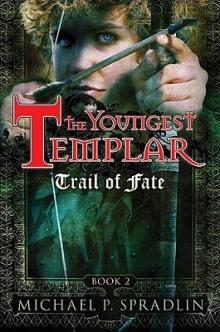 Trail of Fate
Trail of Fate Alcatraz
Alcatraz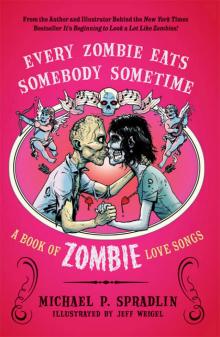 Every Zombie Eats Somebody Sometime
Every Zombie Eats Somebody Sometime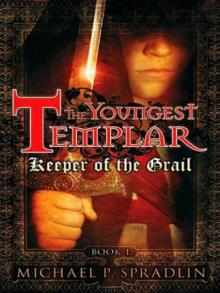 Keeper of the Grail tyt-1
Keeper of the Grail tyt-1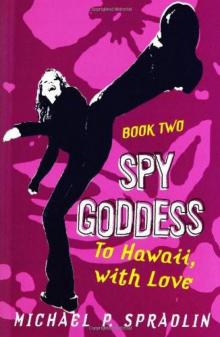 To Hawaii, with Love
To Hawaii, with Love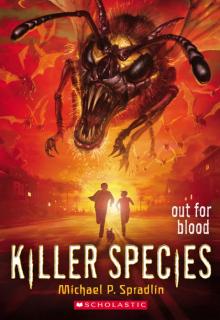 Out for Blood
Out for Blood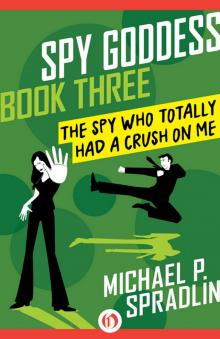 The Spy Who Totally Had a Crush on Me
The Spy Who Totally Had a Crush on Me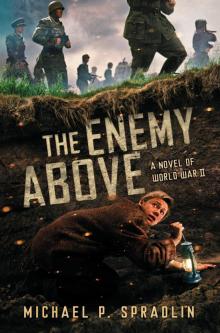 The Enemy Above
The Enemy Above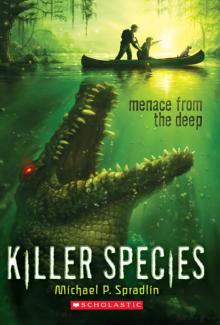 Menace From the Deep
Menace From the Deep It's Beginning to Look a Lot Like Zombies
It's Beginning to Look a Lot Like Zombies Feeding Frenzy
Feeding Frenzy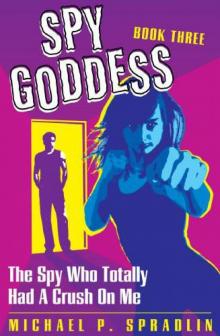 3 The Spy Who Totally Had a Crush on Me
3 The Spy Who Totally Had a Crush on Me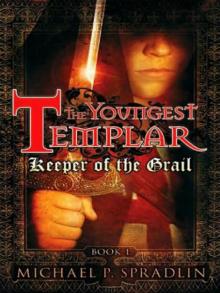 Keeper of the Grail
Keeper of the Grail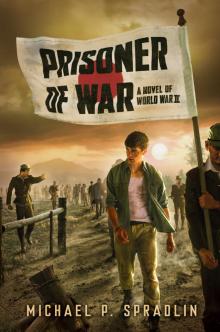 Prisoner of War
Prisoner of War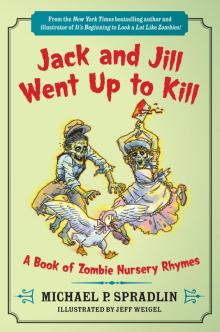 Jack and Jill Went Up to Kill
Jack and Jill Went Up to Kill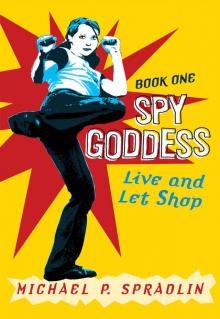 Live and Let Shop
Live and Let Shop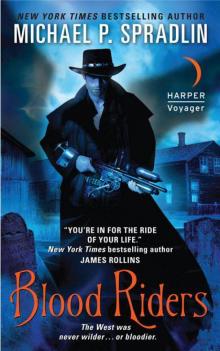 Blood Riders
Blood Riders Ultimate Attack
Ultimate Attack